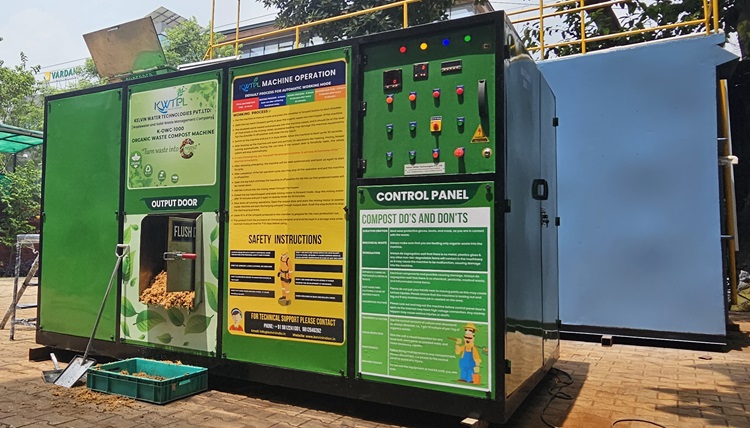How to Choose the Right Food Waste Composter for Your Needs?

What Is a Food Waste Composter?
A food waste composter is designed to recycle leftover food and kitchen waste into compost through biological and mechanical processes. Unlike traditional compost pits that take months, modern composters complete the job in a matter of hours or days. They are designed to be compact, hygienic, and user-friendly.
These machines not only reduce the burden on landfills but also give back something useful — compost that enriches soil quality. One of the most effective solutions today is investing in a food waste composter. But with so many models, sizes, and technologies available, the question arises:
How do you choose the right food waste composter for your needs?
Step 1: Know Your Daily Waste Volume
The first step is to estimate how much food waste you generate daily. This will directly decide the capacity of the composter you should buy.
- Homes and Apartments: Usually generate 1–5 kg of waste per day.
- Small Cafés or Restaurants: Around 20–50 kg per day.
- Large Hotels, Canteens, or Malls: Often 200–500 kg daily.
- Institutions and Industries: More than 500 kg every day.
Step 2: Select the Right Technology
Different composters use different methods, and each has its advantages.
1. Manual Composters – Affordable, but they require regular effort to mix and monitor.
2. Automatic Composters – Convenient, run on electricity, and complete most tasks on their own.
3. In-Vessel Composters – Closed systems that regulate temperature, moisture, and aeration, ideal for large organizations.
4. Bio-Mechanical Composters – Use microbial activity along with controlled aeration to create high-quality compost quickly.
Step 3: Check Space Availability
Space is often overlooked but it is crucial. If you live in an apartment, you may only have room for a compact tabletop machine. Restaurants can place a medium-sized unit in their service or back area. Hotels and institutions with higher waste generation should plan for outdoor or semi-covered installation areas.
Before buying, measure the available space and compare it with the machine dimensions to avoid installation challenges.
Step 4: Think About Operating Costs
While the upfront cost matters, the long-term operating expense is equally important. Consider:
- Power consumption of the machine.
- Need for microbial cultures or enzymes.
- Regular maintenance and servicing costs.
Step 5: Compost Quality Matters
The ultimate goal is to get compost that is safe and nutrient rich. A good composter should produce output that is free from bad odour and harmful pathogens. This compost can be used directly for gardening, landscaping, or even agriculture. Machines that include shredding and microbial treatment usually give better results.
Step 6: Focus on Ease of Use
The best composters are those that make life easier. Features like automatic mixing, odour control, and simple control panels reduce manual effort. Indicators for compost readiness also help operators know when the process is complete. This ease of use is especially important in restaurants and institutions where staff may not have technical expertise.
Step 7: Choose a Trusted Manufacturer
Your composter is a long-term investment, and it’s essential to buy it from a reliable manufacturer. A good supplier ensures not only the right machine but also proper installation, training, and after-sales service. Choosing the right partner means you get ongoing support whenever required.
Why Kelvin Water Technologies is the Right Choice?
In India, Kelvin Water Technologies Pvt. Ltd. is one of the leading names in waste management solutions, offering a wide range of food waste composters for different needs.
- They provide compact units for homes and fully automatic industrial machines for large-scale setups.
- Their composters come with advanced features like shredding, odor control, and microbial processing.
- They design solutions that are customized according to the customer’s waste generation and space availability.
- Their focus on eco-friendly technology ensures low energy use and high compost quality.
- Most importantly, they offer strong after-sales support, from installation to maintenance.
Final Thoughts
Choosing the right food waste composter isn’t just about cost – it’s about finding a sustainable solution that fits your lifestyle or business operations. By considering capacity, technology, space, operating cost, compost quality, and manufacturer reputation, you can make the right decision.
In a world where waste is growing at an alarming rate, a food waste composter is not just a machine – it’s a step towards environmental responsibility. By converting waste into compost, you’re reducing landfill burden, lowering methane emissions, and contributing to a greener planet.